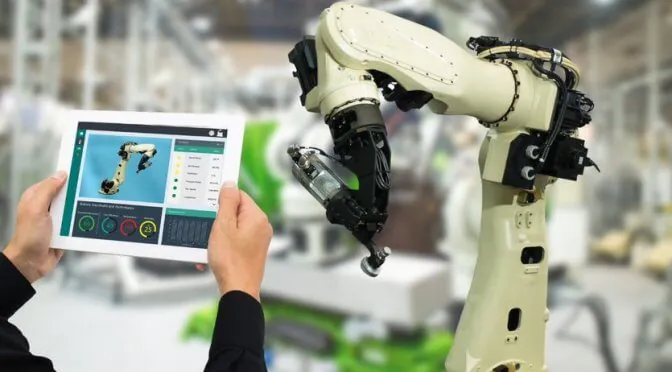
In recent years, the landscape of work has been rapidly evolving with the advancements in technology. Industrial automation has played a significant role in transforming industries by streamlining processes, increasing efficiency, and reducing operational costs. As we look towards the future of work, it is essential to explore the latest innovations from industrial automation suppliers that are shaping the way we work and revolutionizing industries.
1. Automation in Manufacturing
The Role of Robotics
- Robots are becoming increasingly sophisticated, capable of performing complex tasks with precision and speed.
- Collaborative robots, or cobots, are designed to work alongside humans, enhancing productivity and efficiency on the factory floor.To get more information about industrial automation suppliers you may visit https://rspsupply.com/.
- Robotic arms equipped with sensors and AI technology can adapt to changing environments and perform tasks with minimal human intervention.
Integration of IoT and AI
- The Internet of Things (IoT) enables machines and devices to communicate and share data, leading to predictive maintenance and real-time monitoring of manufacturing processes.
- Artificial Intelligence (AI) algorithms analyze data to optimize production schedules, detect anomalies, and improve overall operational efficiency.
- Smart factories are being created, where interconnected systems drive automation and decision-making processes.
2. Automation in Logistics and Supply Chain
Warehouse Automation
- Automated guided vehicles (AGVs) and drones are revolutionizing warehouse operations by automating material movement and inventory management.
- Autonomous mobile robots (AMRs) are being deployed for picking and sorting tasks, reducing human intervention and improving order fulfillment rates.
- Warehouse management systems powered by automation technologies optimize inventory storage, reduce errors, and enhance supply chain visibility.
Last-Mile Delivery Innovations
- Delivery drones and autonomous vehicles are being explored for last-mile delivery, enabling faster and more efficient transportation of goods to customers.
- Routing optimization algorithms and real-time tracking systems improve delivery accuracy and provide customers with visibility into their orders.
- Automation in delivery processes reduces delivery lead times, operational costs, and environmental impact.
3. Automation in Healthcare
Robot-Assisted Surgery
- Surgical robots equipped with advanced imaging and navigation systems assist surgeons in performing minimally invasive procedures with precision and control.
- Automation in surgical tasks reduces human error, shortens recovery times, and improves patient outcomes.
- Telemedicine platforms enable remote consultations and monitoring, enhancing accessibility to healthcare services.
AI in Healthcare Diagnosis
- Artificial Intelligence algorithms analyze medical imaging and patient data to assist healthcare professionals in diagnosing diseases and recommending treatment plans.
- Machine learning models predict patient outcomes, identify patterns in healthcare data, and enhance personalized medicine approaches.
- Automation in healthcare diagnosis streamlines the diagnostic process, improves accuracy, and enables early detection of diseases.
4. Automation in Retail
Checkout-Free Retail Stores
- Retailers are implementing cashier-less checkout systems powered by computer vision, sensor fusion, and AI technology to enable seamless shopping experiences for customers.
- Automated inventory management systems use RFID tags and IoT sensors to monitor stock levels, reduce out-of-stock situations, and optimize store operations.
- Personalized recommendations and targeted marketing strategies driven by automation technologies enhance customer engagement and loyalty.
Robotic Fulfillment Centers
- E-commerce companies are deploying robotic fulfillment centers that automate order picking, packing, and shipping processes, increasing order processing speed and accuracy.
- Autonomous robots navigate warehouse aisles, retrieve items, and collaborate with human workers to fulfill customer orders efficiently.
- Integration of automation technologies in fulfillment centers improves warehouse space utilization, reduces labor costs, and enhances overall operational efficiency.
5. Conclusion
Industrial automation suppliers continue to innovate and develop cutting-edge technologies that redefine the future of work across various industries. By embracing automation solutions, businesses can unlock new opportunities for growth, improve operational efficiency, and stay ahead in a competitive marketplace. As we move towards an increasingly automated workforce, it is essential for organizations to adapt to these changes, upskill their workforce, and leverage technology to drive innovation and success.